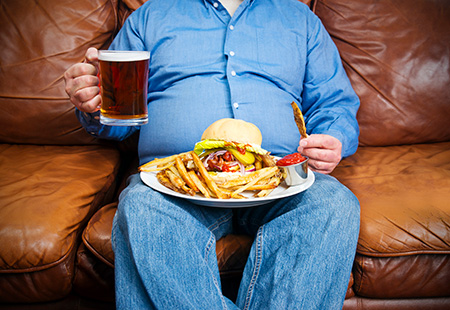
Intermittent Fasting, Keto, or Balanced Diet: Which is Best for Weight Loss and Overall Health? A UC Davis Expert Weighs In
Choosing the right diet can feel overwhelming. UC Davis molecular exercise physiologist Keith Baar offers insights into how balanced diets, intermittent fasting, and keto diets affect your body. Let's explore the pros and cons of each.

The Diet vs. Exercise Debate: Which Matters More for Weight Loss?
While exercise is crucial for overall health, dietary changes can significantly impact weight.
- Burning calories through exercise requires considerable effort.
- Controlling calorie intake through diet is often more manageable
Baar emphasizes, "It is easier to regulate your weight with your nutrition, but adding more physical activity will help you better regulate your health."
How Modern Lifestyles & Food Choices Impact Your Body
Your body is designed to handle periods of both abundance and scarcity. However, modern lifestyles disrupt this natural cycle.
- Hypokinetic Diseases: Reduced physical activity leads to health problems.
- Frequent Eating of Processed Foods: Constant consumption of carbohydrates creates an unhealthy stimulus.

Why "Good Food is Good Medicine": Understanding mTOR
The mechanistic target of rapamycin (mTOR) is a protein that plays a vital role in muscle and immune system function.
- mTOR Activation: Responds to stimuli, stores calories, promotes growth, and fights antigens.
- Overconsumption of Processed Foods: Leads to chronically high mTOR activation, causing insulin resistance and inflammation.
Diets that improve lifespan often target mTOR activity by lowering protein and carbohydrate intake or restricting feeding times. This allows the body to respond more effectively to threats like viruses, enhancing energy production and improving muscle and brain function.
Balanced Diet Benefits: Is It Enough?
A balanced diet includes carbohydrates, proteins, and fats, but incorporating periods of lower calorie intake is also important.
- Reduced Calorie Intake: Eat about 10% below your caloric needs.
- Time-Restricted Eating: Limit eating to a specific window, fasting for around 17 hours a day.

While a balanced diet is beneficial, it may not always be sufficient without these additional strategies.
Unlocking the Potential: Exploring the Keto Diet
The keto diet involves consuming more fats and proteins while reducing carbohydrates.
- Ketosis: The body burns fat for fuel, producing ketones.
- Benefits: Studies on mice showed improvements in muscle mitochondria, strength, endurance, brain learning, memory, and lifespan compared to low-carb diets.
- Risks: Potential for weaker bones and increased cholesterol.
Intermittent Fasting: A Practical Approach to Time-Restricted Feeding
Consider intermittent fasting as time-restricted feeding, which involves cycles of eating and fasting.
- Resetting the Baseline: Fasting periods help reset the body's baseline, including mTOR activity.
- Ketone Production: Fasting can lead to ketone production, similar to a keto diet.
Although intermittent fasting offers benefits, it may not provide the same therapeutic ketosis levels as a dedicated keto diet.
The Future of Dieting: Can Supplements Bridge the Gap?
Can you enjoy the cognitive and muscular benefits of a keto diet while consuming a mixed diet?
- Ketone Supplements: Could keto esters or keto salt drinks offer benefits without the risks of a keto diet?
While promising, the impact of such a diet on weight loss, muscle, and brain function remains uncertain.
Disclaimer: Always consult with a healthcare professional or registered dietitian before making significant dietary changes, especially if you have specific medical needs.








